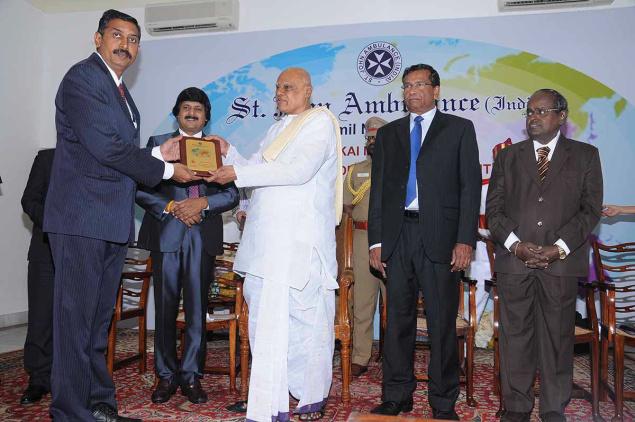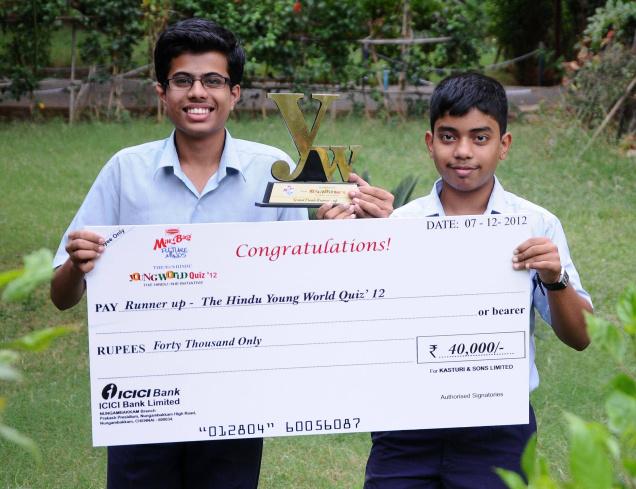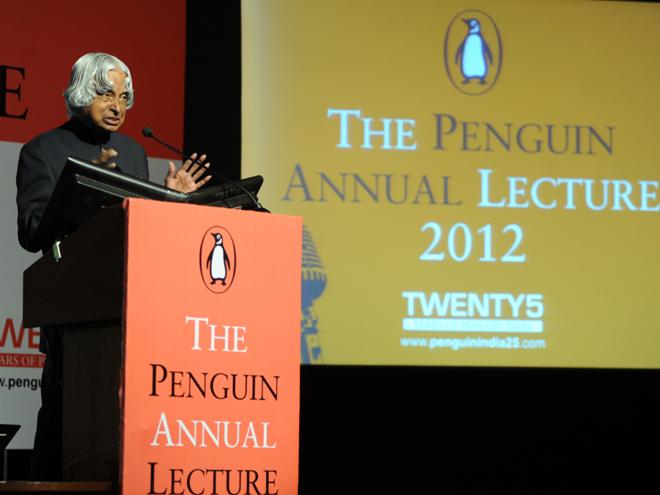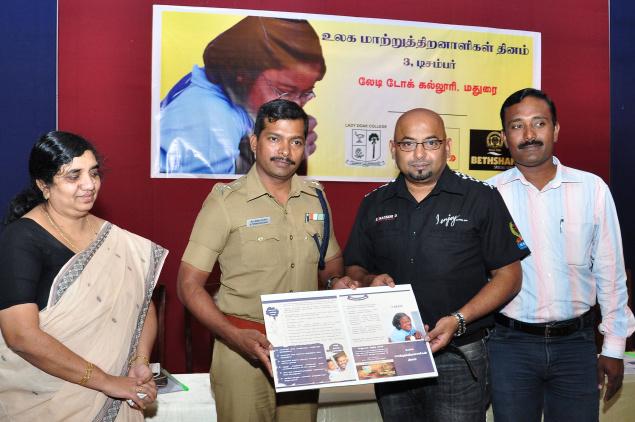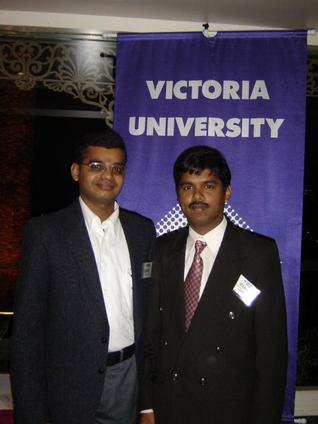
Karthikeyan Vaitheeswaran with his friend Siva
Karthikeyan, who did a business management course from Victoria University, is now one of its successful alumni.
Armed with a Masters in NGO management (1997-99) from Madurai Kamaraj University, I started my career in the non-profit sector in Chennai. I specialised in livelihood development of the poor. With four years of experience, I understood that a sustainable model of income generation is the need of the hour to eradicate poverty. I felt the need to do a business management course which would help me in assisting people in developing sustainable income generating activities.
I searched for a university offering business management course which is flexible in subjects offering a variety of specialisations, affordable and of shorter duration. Finally, I found the MBA course at Victoria University (VU), Melbourne, which catered to my expectations. VU has 10 campuses in Australia and I chose City Flinders campus located in the centre of Melbourne. IDP Chennai helped me in the application and visa process. I got an education loan and landed in Melbourne in February 2004. With a semi-urban background from Trichy, it was a culture shock and I felt alien in a new land. Everyone had their own space in terms of privacy and busy with their work. With spoon feeding at home and at college in India, I felt I was not cared for. Later, I understood that, I have to be more expressive of my needs to the concerned authorities.
The orientation program for the fresher’s was useful in getting to know about VU and student life in Melbourne. Students Service Centre (SSC) of VU was helpful in guiding me in understanding the life in a multi-cultural environment like Melbourne. It helped me find a place to stay in, part-time jobs and the use of public transport. . I started working in a gas station in a night shift.
Personal attention
The professors understood my background and abilities and provided extra attention. International exposure and industry-academia experience of the professors helped me in understanding the international arena of business.
I did some of the assignments with senior level business executives and presentation of the assignment work enhanced my public speaking and personality skills.
After the first semester, I felt that VU is the best place to study. I started feeling more confident and had complete freedom to do what I likewhile respecting and recognising others . Today, I am networking with some of the leading business executives across the world.
Self-discovery
I should also mention about the library in VU. It is a store house of knowledge with thousands of books and has subscription to hundreds of international journals. VU encourages students to take part in sports, cultural and community activities. I was part of the Melbourne Tamil Sangham and volunteered in its development activities.
While I was in the last semester, the focus was on how to market myself. VU helped me in improving my writing skills, reorganise my resume and gave me ideas on career options.
After completing MBA, I returned to Chennai in 2005 and joined the United Nations International Labour Organization (ILO) as Project Officer.
My management studies in VU helped me in managing the time-bound community development projects and excelling in my career. At present, I’m working with the ILO Country Office for India in New Delhi as National Project Officer.
I can see the change in myself after my studies in Australia. I have been making use of the management skills acquired in Victoria University towards building sustainable livelihoods of the poor and marginalized people.
VU has featured my story as one of the International Success Stories on its website which motivates many Indian students to study in VU and understand the education system in Australia better.
In August 2011, I was awarded the “2011 Australian Alumni Excellence Award for Community Service”by the Australian Government. I am proud to be a VU Alumni.
source: http://www.TheHindu.com / Home> News> Education> HeadStart / by Karthikeyan Vaitheeswaran / December 24th, 2012
